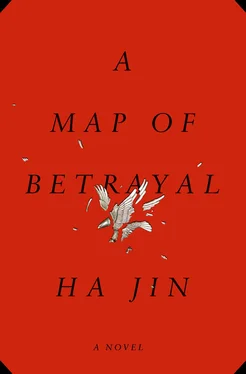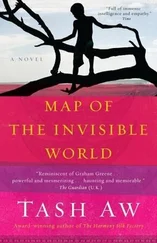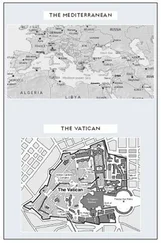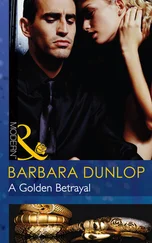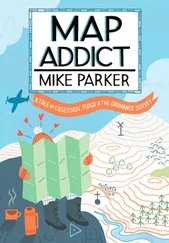Nellie couldn’t gain weight either, despite her hearty appetite. Something remarkable had happened to her over the years, and even she could feel the change in herself. She was calmer and more articulate than the young bride of fourteen years before. Perhaps this was due to her reading of books, hundreds of them, mostly paperback romances and detective novels. When her daughter was a pupil, Nellie had read everything the girl worked on in school, and had often kept her company while she did homework. She continued to do that until Lilian left for a prep school in Groton, Massachusetts, where she developed a passion for history thanks to a wonderful young teacher. In secret the girl had a minor crush on that sweet man, whose fingers she often fantasized caressing her budding breasts at night. Unlike most of her schoolmates, she did not return home very often, knowing her parents were estranged. For all its peace and quiet, their house had an icy feel, which Lilian dreaded. She was glad that her mother had begun working outside their home.
At the bakery, sometimes a cop or a lawyer on the way to the courthouse would stop by to shoot the breeze with Peggy. Some of the men would leer at Nellie and a few even attempted to tease her, but she had no clue how to flirt in spite of her looks, which had improved with age: a heart-shaped face, high cheekbones, glossy eyes, and a plump bottom lip. It was simply not in her nature. She always had a reserved manner that might come across as arrogant, as if she had a perfect family and a doting husband. She didn’t use lipstick because she had to sample bread and pastries, but she put on delicate makeup that added a fine touch to her features. She’d wear an avocado green cardigan, a red apron, and a white hat. Some people even mistook her, the only woman shop assistant, for a recent European immigrant who couldn’t speak English. She would smile at customers timidly and wordlessly. In the beginning Gary disliked her going out to work, saying they didn’t need the money, but she insisted she do something to make herself worth more. She referred to the fact that Gary had bought life insurance on himself whereas she couldn’t do that because she held no job. “My life is so worthless,” she used to mock herself with a tinge of bitterness. Probably she hoped that when she died, she could leave something to her daughter. She wasn’t going to worry about her husband, who could take care of himself anyhow.
Ever since the newspaper’s report about the Soviets’ intention to attack China’s nuclear bases, Gary had been trying to piece together the sequence of events that had led to the disclosure. Though a mere translator at the CIA, he had by the summer of 1970 heard enough about it to convince him of its validity. Word had gotten around that Soviet Ambassador Anatoly Dobrynin had approached Henry Kissinger on August 20 the previous year and requested a meeting. When they met, what Dobrynin said amazed the secretary of state: the Soviet Union wanted the Americans to stay neutral if it launched air raids on China’s nuclear facilities. Before the Russians started the attacks, they’d like to know how the United States would respond. At first Kissinger was unsure how serious Dobrynin was, but the Soviet ambassador emphasized that the attacks would be surgical, only on military targets, and that there’d be no civilian casualties. The message finally sank in, but Kissinger still wouldn’t respond directly, saying he’d have to consult the president. Then a week later, instead of a direct answer from the White House to the Kremlin, The Washington Star reported the Soviets’ plan. Apparently the United States did not remain wholly neutral in this matter. Weak though China was, it still could help counterbalance the Soviet Union. Beijing got the message about the Russians’ threat and responded by detonating two warheads. Yet the Chinese leaders might not have seen the White House’s intention in leaking the news, which could be twofold: to widen the gulf between Beijing and Moscow, and to extend a tiny olive branch to the Chinese.
Gary knew the U.S. policy of neutrality in regard to the Sino-Soviet split—“let the two dogs eat each other”—but he felt that the United States seemed willing to lean toward China within the realm of neutrality. This was a window of opportunity the Chinese ought to seize. To Gary’s mind, Mao and the Politburo might need more details about this news leak to grasp its full significance. Above all, he wanted to see the two countries get closer and eventually become partners. Regardless of how others interpreted the news or rumor, he wanted to steer the Chinese leaders toward some reconciliation with the United States. For now this might be the only way China could avoid destruction at the hands of the Soviet Union.
Gary had to present a strong argument to his superiors back home. Assuming they still could receive intelligence from him, he wrote a report and gave a succinct account of the meeting between Dobrynin and Kissinger. He made it clear that there was no way to verify the contents of their conversation, but there must be a kernel of truth in the hearsay. He stressed that the published news might be a well-intentioned gesture the United States was making to China, and that in the long run Washington might be willing to join hands with Beijing against the Soviet Union. Now could be an opportune time for the Chinese leaders to develop a productive relationship with the West as a way to counter the Russian Polar Bear.
Gary wondered if he had painted too rosy a picture for his higher-ups. But he believed in his analyses, which he’d done as objectively as he could. By nature he was not an optimist, and there was no reason for him to lie to the national leaders about the U.S. goodwill. Yet it was possible that by now he had too much affection for this land, where life could be safe and comfortable and where few people died of hunger, and this positive feeling might have affected his judgment. Although he had always remained an outsider capable of stepping aside to observe life flowing by, he did love American movies and the NBA games — he was an ardent fan of Wilt Chamberlain of the Lakers. He was also fond of the American landscape — the mountains, waters, vast agricultural fields, highways. If he were a common immigrant, he might have felt at home in this place, adopting it as his homeland. He could see such a possibility. Yes, the U.S. Army had been mercilessly fighting the Communists and even slaughtering civilians in Vietnam, where the war actually gave the number one superpower a bloody nose, but there’d been protests and demonstrations against the war all over the country. Yes, racism was rife and prejudices everywhere, but racial segregation had been abolished and the country had been making social progress. This was a place where one could live with decency and some dignity. This was a country that protected its people, many of whom in return loved it. Gary tried to fight down all the digressive ruminations that might erode the spirit and integrity needed for fulfilling his secret mission. He went on to revise his report, trying to be as reasonable and objective as possible.
At long last Father Murray notified him that Bingwen Chu had returned to his office. When the pomegranate tree in his backyard had dropped its last fruit in mid-November, Gary flew to Hong Kong directly, too eager to make a detour through Taiwan or Thailand. His handler, absent for more than four years, had finally been summoned back to Beijing. To Gary’s surprise, Bingwen had aged considerably: his hairline was higher, his eyes bleary, even his brows half gray, and dark lines meshed his face like a loosely drawn map. Worse still, he limped a little because one foot had been smashed by a cinder block at a construction site where he’d been made to labor. Hearing that Gary had flown to Hong Kong directly from America, his handler was disturbed and admonished him never to do that again. He even said that if Gary was caught by the Americans, their superiors would hold him, Bingwen, accountable. He’d be punished and might go to prison. Gary promised he’d be more cautious in the future.
Читать дальше
